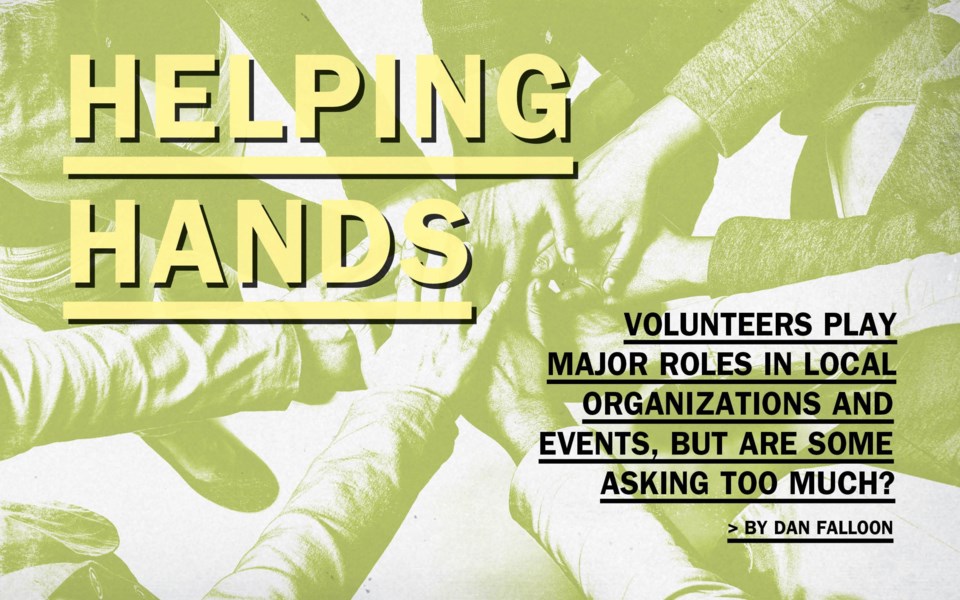
As he stood on Blackcomb Mountain running an aid station in the pouring rain, David Jenkins couldn't help but have, at the very least, a fleeting moment wondering why.
"Very heavy rain showers turned the surrounding area into a mud bath," he says in a phone interview. "It was a pretty tough day."
He had not only given up a full day to help with the Salomon Coast Mountain Trail Series' Whistler Alpine Meadows Race, starting at 5 a.m. and working late into the evening, but had driven up from Coquitlam to do so.
"It goes through my mind a number of times, especially when you're paying out of your own pocket for travel expenses and so on," he says. "It can take a hefty amount of money to volunteer sometimes."
But Jenkins, who regularly helps with the seven races on the series circuit, reconsiders when he thinks about the 570 runners who set out at the beginning of that September day, including several who complete the 110-kilometre course more than 27 hours after the starting gun.
"I see this as a way of putting something back into the sport," Jenkins says. "You see all these runners really putting their heart and soul into a race. When they stop at an aid station, you try to give them encouragement."
Stories like Jenkins' are common. Whistler would not be what it is without countless unpaid folks putting in hour upon hour of labour behind the scenes.
Here's a look at how several local organizations and events rely on the efforts of volunteers to stay viable, what some are doing to ensure they don't burn out their helpers, and how there is some controversy about some for-profit groups asking for free(ish) work.
'...The value we have for our volunteers...'
With all the work it does keeping the resort ticking, the natural place to start is the Whistler Community Services Society (WCSS), which at any given time boasts 50 to 60 volunteers in its ranks.
WCSS hosts those people in a variety of roles ranging from helping out at the food bank, at the Re-Build-It Centre and the Re-Use-It Centre, with the school-lunch program or with one-off fundraising events.
According to executive director Jackie Dickinson, the food bank is the core of WCSS' volunteer operations with several of its helpers serving there for more than two decades, longer than many staff members have been with the organization.
"They've seen us through many different types of locations and situations. Whenever we have staff or people we're onboarding, especially in our social-services department, we always have them spend some time in the food bank. We encourage them to learn from the volunteers that have worked there because they hold so much information and such a wealth of understanding," she says.
"It instantly creates a connection around the value we have for our volunteers, their knowledge, and what they have to offer."
With food-bank volunteers often working in large groups together—10 for morning shifts and five more in the afternoon—Dickinson says there's a social aspect to the experience that has kept the same people in place for so long.
In addition to that sense of connection, at the food bank, volunteers get to experience the direct benefit they've had on others in the community.
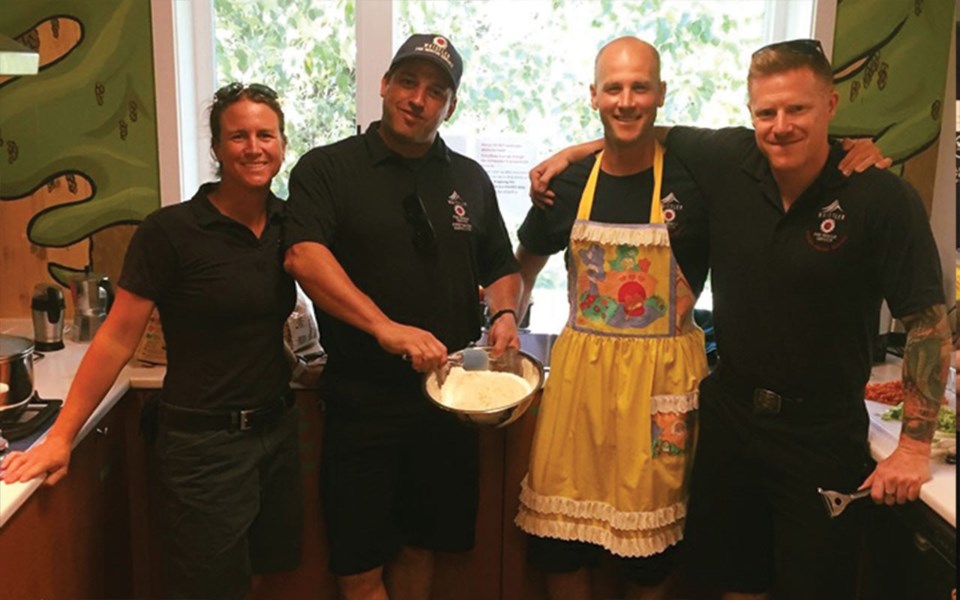
"There's instant gratification from your work, which I think is a really big part. Sometimes we volunteer and we might be behind the scenes, which is necessary work, but we're not sure what direct impact that has on our community," Dickinson says. "Our food-bank volunteers can directly see the impact because they're helping people with food-security issues and hunger and working directly with those individuals and families."
A newer WCSS effort is also focused on making sure people have food in their bellies. The school lunch program runs three days a week, provides food to all five of Whistler's schools and last year, served more than 12,000 snacks to local students. That effort took 143 volunteer hours with one individual responsible for more than 60 of those. On school-lunch days, three are working with another five on-call.
Isla Robertson answered the call to help during the school year, joining school-lunch coordinator Cara Burrow once a week to prepare snacks and lunches.
"Believe it or not, in Whistler, kids still go to school and are not getting all the nourishment and nutrition that they need," Robertson says.
Growing up in Burnaby, the 34-year-old started volunteering at a young age, helping out with the Vancouver Writers Festival when she was in high school. Robertson enjoyed the work as well as the associated fringe benefits, such as free entry into events.
She's gotten involved with other arts organizations, even parlaying volunteer work with Vancouver theatre The Cultch to part-time and eventually full-time employment.
Upon moving to Whistler two years ago, she quickly reached out to Arts Whistler, offering casual help at its events as a ticket-taker and usher. While helping out an organization that aligns with her interests was important, Robertson adds that it was a quick way to get—and stay—involved in a local social circle.
"I think it's really important to be around people you share values with and that are passionate about the things that you're passionate about. I find that really rewarding," she says. "Those relationships are as important as friends and family."
Long-term commitments
For a resort full of transient people that is experiencing a serious labour shortage, it might be surprising that the non-profits Pique talked to say numbers are healthy or, at times, exceed what is required.
For her part, Robertson explains it's important to her to give more hours to a local organization, especially while she's working less at her regular day job. She plans to return to the school-lunch program when it starts up again in the fall, and is eyeing summer roles, such as lending a hand to the Foodworx challenge during Crankworx.
"The great thing about volunteering is you can choose when you have more free time, when you have a slow week, or when the weather is terrible in Whistler in September and October, you can go in there and, when you're spending time indoors anyway, you can reach out and ask for volunteer opportunities," she says.
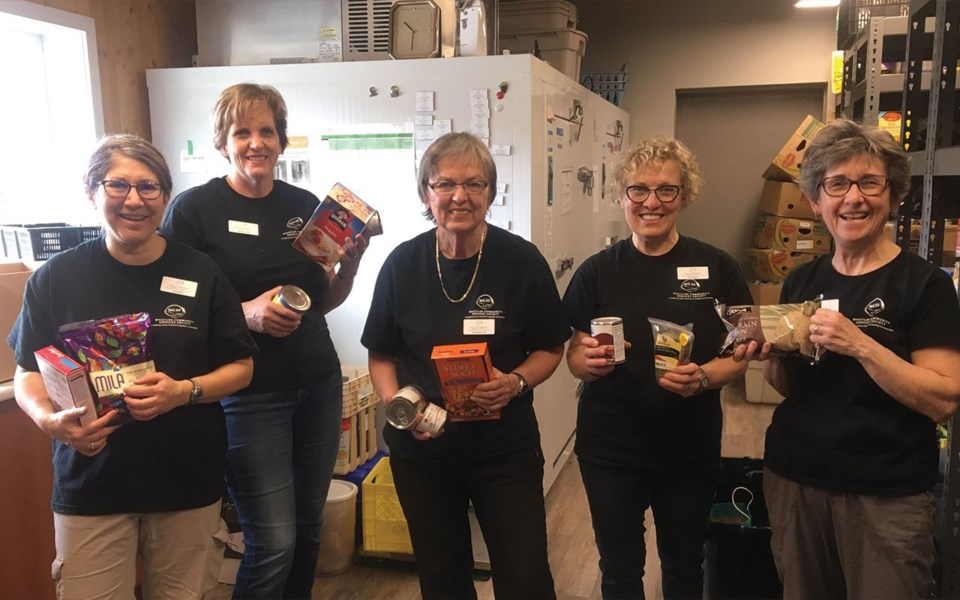
For its core programming, WCSS hopes to receive a commitment of, at minimum, six to 12 months from any potential volunteer. With roles like those in the food bank requiring strict confidentiality, there needs to be a level of trust between client and volunteer.
"In a small town, we want to respect the confidentiality of the people we serve, so everyone fills out a confidentiality agreement," Dickinson says. "Building trust with our clients is a really integral part of building the delivery and service of that program."
Dickinson also shone a light on an oft-forgotten but important volunteer role: serving on a board. With WCSS, its 11 board members serve two-year terms with many choosing to sit for the maximum of eight consecutive years. After taking a break, some even return for more.
"They're making really important, strategic decisions around the long-term strategies of our organization," she says.
While volunteer help comes from all age groups, Dickinson says, those who can commit to a regular shift have a sense of stability.
"It can be harder for anyone, it doesn't matter what age they are, if they don't have secure housing or their job is somewhat unpredictable," she says.
Meanwhile, Whistler Animals Galore (WAG) has a core group of roughly 45 volunteers—and a waitlist of approximately 80. Volunteer coordinator Robyn Bosada says because Whistler's nature encourages turnover, the waitlist is a helpful resource.
"It changes seasonally, since Whistler is such a transient place. Often, groups of people leave at a time, and then we're always looking to bring on some fresh volunteers," she says.
Those who volunteer in the shelter can sign up for either cat enrichment or dog enrichment shifts. The former involves playing with the felines and, sometimes, rearranging their rooms while the latter includes taking the dogs for walks or out into the WAG yard for some play time and, occasionally, some training.
Volunteers commit to a shift a week for at least four months, and again, trust comes into play.
"We also do have a lot of nervous animals, so it does take them quite a bit to earn the trust of the animals. That's why we like to have them onboard longer," Bosada says.
The one-offs
Being a resort town with a cornucopia of sporting and artistic events, there's no shortage of short-term volunteer roles that Whistler's festivals need filled.
The Whistler Alpine Meadows race, at which Jenkins volunteers, requires 350 to 400 shifts to be filled over the course of the weekend, says volunteer coordinator Genevieve Arnaud. With race distances of 110 kms and, new this year, 175 kms, some marshals, sweeps and aid station helpers will put in time in the dead of night as ultrarunners challenge the course.
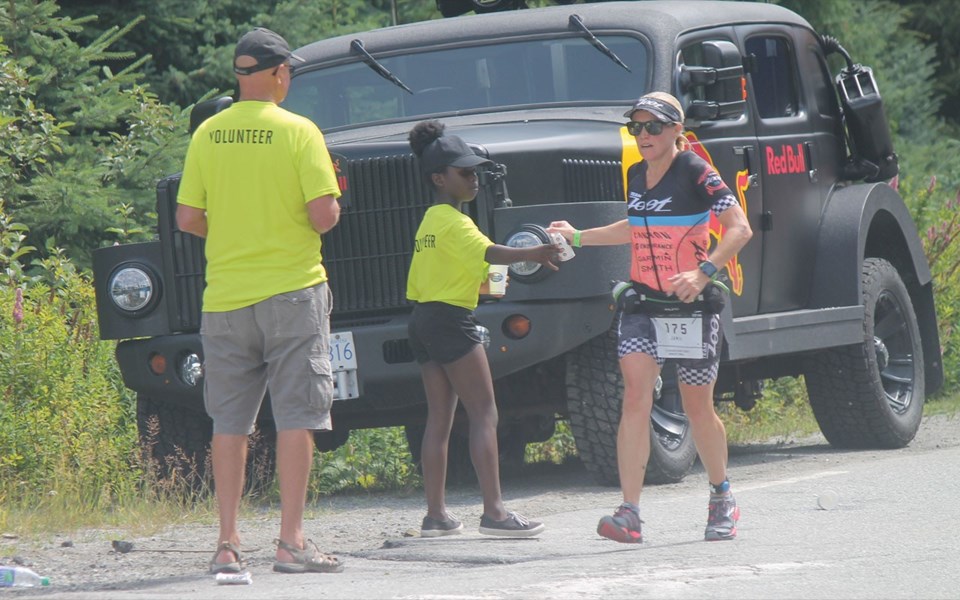
"It always starts with whatever people can give us, but with this event, we're looking at a couple overnight components. Last year, we had to divide it up into eight-hour or 12-hour shifts, even. There were a couple overnight shifts, but we try to minimize those as much as possible for safety," Arnaud says.
While several locals sign up to help, a significant portion is from elsewhere. Arnaud says some, like Jenkins, help out with several of the series' races, while competitors' partners—and even competitors themselves—will offer help.
Crankworx, meanwhile, requires a massive volunteer contingent for its 10-day mountain-biking extravaganza. In 2018, more than 330 volunteers from 23 different countries contributed upwards of 5,500 hours to help the 10 different crews achieve their goals. Tasks range from administrative work with the competitors or in the office, on-course marshalling and timing with both the pros and Kidsworx, and environmental initiatives such as Greenworx.
Crankworx World Tour general manager Darren Kinnaird got his start with the festival as a volunteer, starting a de facto awards crew before it became an official category. Kinnaird says he's made sure to keep those humble beginnings in mind even as he now heads up a three-stop international tour that leans heavily on those who were once just like him.
"What makes Crankworx unique, which is what makes it unique to your spectators and your participants, also makes it unique to your volunteers, is you are so close and engaged in the action," he says. "A lot of other festivals and events, you're behind a fence or you can't get close to the action or meet your heroes."
One of the challenges event producers face that, at least currently, organizations don't is that it can be difficult to attract the volume of volunteers needed to be successful.
"We've been good with numbers but we are just good. It's always nice to have a few more people just in case unexpected things happen, like they always do," says Arnaud, who is in her third year with the Coast Mountain Trail Series.
Over at Whistler Sport Legacies, president and CEO Roger Soane says the organization relies heavily on both long-term and short-term volunteers. Whistler Olympic Park and, to a lesser extent, the Whistler Sliding Centre welcome a team of 65 to 85 consistent volunteers to regularly help with its programming. However, there is a greater need when either host events, as the sliding track did this past winter when the International Bobsleigh and Skeleton Federation brought its World Championships to town. More than 150 people came to help out, but Soane says being shorthanded is common and the organization sometimes has to shift resources around to fill in the gaps.
"We're always tapping on the same shoulder asking 'Can you come out and help us?'" he says. "There is always a concern that we're not going to reach that number."
Corporate volunteerism
The final edition of the Subaru Ironman Canada in Whistler came and went on July 28 with more than 1,200 volunteers stepping up during race week to make the day possible for roughly 3,300 athletes.
From the time the race landed in the resort in 2013, it was one of the region's most divisive events. Shutting down traffic on Highway 99 for the better part of a high-season weekend day didn't help, and doing so in order for a multinational corporation to make a profit, with the Resort Municipality of Whistler (RMOW) allocating six figures annually through either the Resort Municipality Initiative or Municipal and Regional District Tax programs for the privilege, meant a fairly sizeable group of Whistlerites weren't interested in giving up their time—especially after the World Triathlon Corporation was purchased by China's multi-billion-dollar Dailan Wanda Group in 2015.
While even large events such as Crankworx insist the funds it raises go right back into the event, Ironman is unapologetic about its motivations and isn't worried about those who feel volunteering for a profit-driven company is inappropriate.
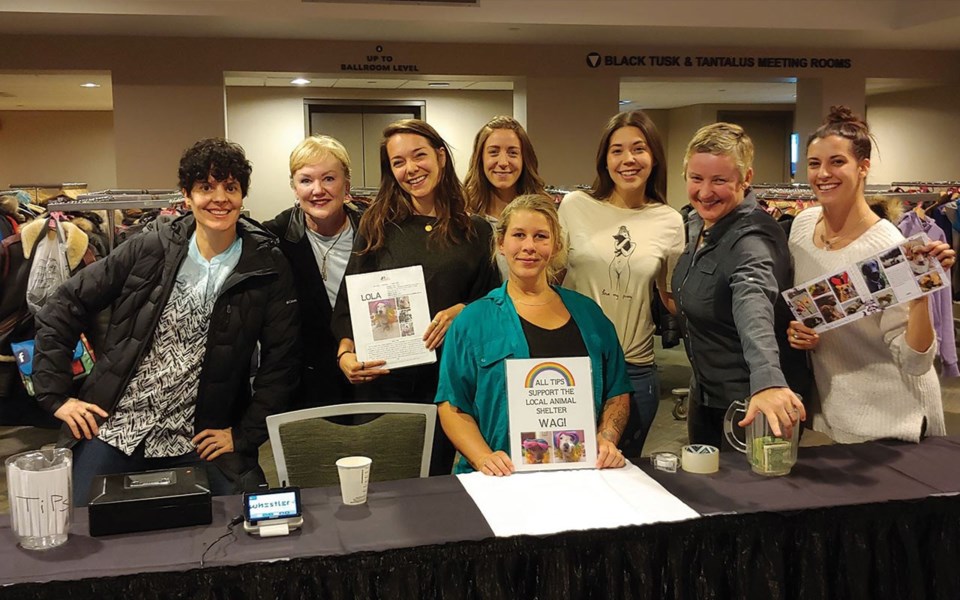
"Definitely, the people who have that opinion don't volunteer," volunteer coordinator Marie-Anne Prevost says. "When I do get the chance to have a discussion with somebody about it, I always bring up the fact that every single sporting event has volunteers, whether it's the Olympics, FIFA [World Cup] or an alpine FIS event. They all survive on volunteers and they all make lots of money.
"We are a private corporation that is a for-profit corporation, absolutely. There's no secret about that. However, we do need volunteers in order for the event to happen.
"[Without volunteers], it would never be profitable, just like the Olympics wouldn't be."
(It should be noted that though large organizations such as the International Olympic Committee and FIFA bring in billions of dollars through their cornerstone events, they are technically non-profits.)
However, Ironman attracts volunteers through a quid pro quo approach, as any community group, led by a volunteer captain who rounds up 30 people to help staff an aid station, was eligible to apply for a grant through the Ironman Foundation. Several local groups did just that, with newer groups such as We Run Whistler and the Whistler Triathlon Club coming out to garner some much-needed funding in their early days.
"They apply for an Ironman Foundation grant and they get, basically, a grant, a donation to their community group," Prevost says. "[The amount] is different. They don't apply for the exact amount of the grant. The Ironman Foundation gives a lump sum of money to Ironman Canada and, depending on how many grants are applied for, it's divvied up among the applications and it's also divvied up based on how many volunteers each applicant has brought in to help."
This year, 26 local groups are set to receive grants.
Volunteerism in a corporate context has its detractors. Though it's rare for such circumstances to arise when non-employees give up their time to a for-profit company (and if it's an employee, that's a whole other issue), companies organizing troops of employee volunteers to help charities is becoming increasingly common. While increased corporate social responsibility through employee volunteerism can benefit a company, employees and a non-profit if done well, that's not always the case. In a 2015 Boston Globe article, a YMCA chief operating officer described regularly encountering clueless volunteers ill prepared to actually perform the necessary labour.
There can be issues with company messaging as well, with employees finding it difficult to decipher whether their work would be truly voluntary or more encouraged by the employer, which can violate labour laws. In an article for the London School of Economics, Temple University professor in the Department of Strategic Communication, School of Media & Communication, Donnalyn Pompper, described how the efforts could go awry for both employee and employer:
"As team players, some go along with a volunteer program in hopes of a positive performance review, transfer, or a promotion with greater rewards. Should such results fail to materialize, expectancies are violated, and employees are left to ponder whether their time investment really was worth it. Forcing employees to do something they may resist could result in social media backlash, with employees using uncontrolled media to speak out against companies in real-time," she wrote.
Pompper, however, did go on to emphasize that, done right, employees can gain new skills, companies can receive good publicity for the work, and of course, accomplishments such as building houses for the homeless, beautifying a neighbourhood or mentoring local youth are achieved.
Saying thanks
While most volunteers don't approach the work thinking about how it can benefit them, none would deny that it feels great to have their efforts appreciated.
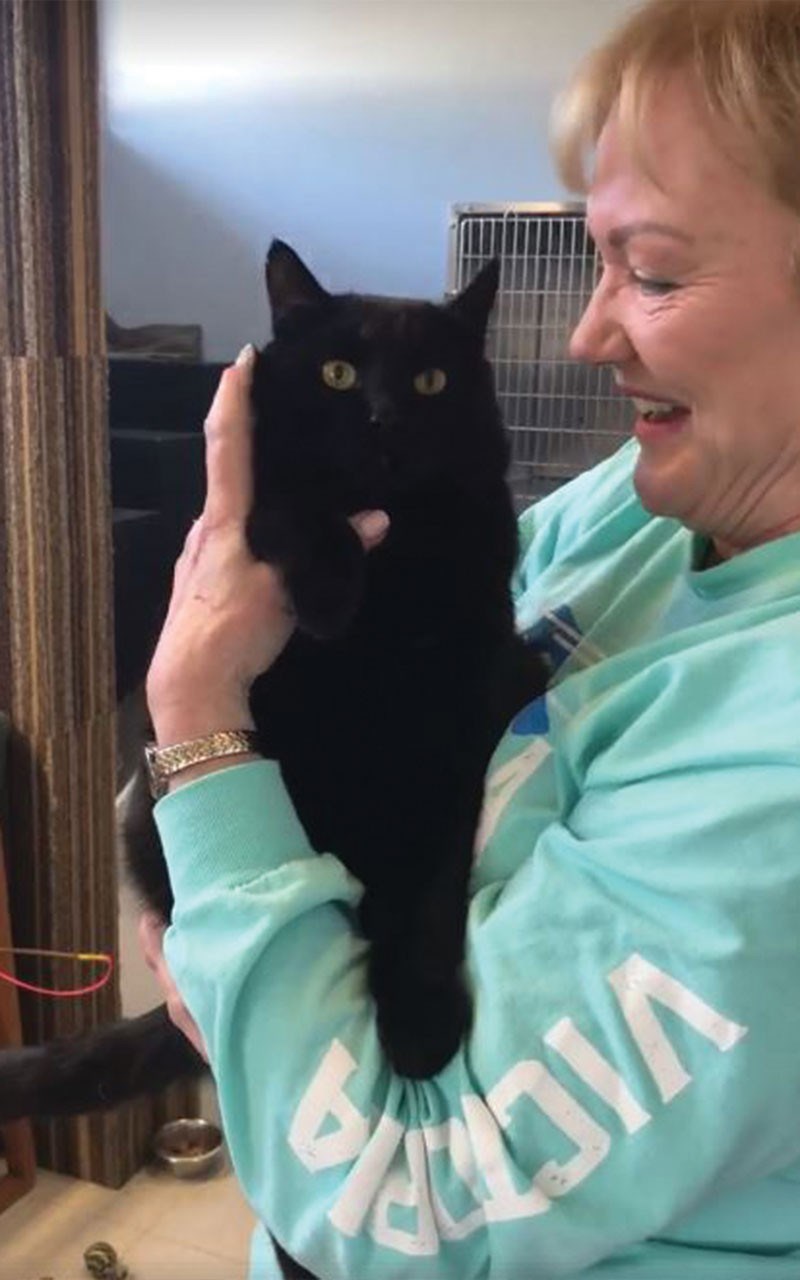
As Ironman shows, some have more resources than others. Crankworx, for example, hosts a renowned wrap-up party where hundreds of prizes, some as valuable as $5,000 GT bikes, are handed out. As well, each volunteer earns a Whistler Mountain Bike Park pass for every 12 hours worked.
WAG, meanwhile, runs a volunteer of the month program to help recognize good work.
"Once a month, we do recognize volunteers who are showing a lot of initiative and are contributing a lot to our shelter," Bosada says, noting Moguls recently donated gift cards as an extra thank-you. "We get everyone in the shelter to sign a card for them to show them how much we really do appreciate their help."
The Whistler Alpine Meadows race, meanwhile, offers runners a discount on entry into future races, in addition to a swag bag and volunteer T-shirt. Arnaud notes that at other, more established races such as the Squamish 50, incentives include presale registration, which comes in handy when the event sells out almost immediately nearly a year before the race.
"It's hard to know who's going to use the entry or who isn't and try to cater to different people's needs or interests," she says. "Ours is specific to running, so it just keeps it simple."
Food often plays a central role in how organizations recognize volunteers. WCSS hosts a volunteer dinner at the Fairmont Chateau Whistler each year, while Whistler Sport Legacies also invites its volunteers to grab a bite. Soane, who makes a point to attend, adds that he'll generally field about 30 minutes of questions from volunteers who are invested in what happens with the organization.
"They're very engaged in what we're doing and what we're doing for the future. Some of them have individual interests in different sports—one might be biathlon, or sliding, or ski jumping. They have questions on what are we doing for each individual sport. How are we growing? Is the community buying in?" he says.
Avoiding fatigue
When it's not unusual to go back to the same wells again and again, what keeps those people coming back fresh instead of burning out?
Soane's approach is to treat Whistler Sport Legacies' volunteers in the same manner as employees, so there are orientation events and clear scheduling through a centralized volunteer coordinator.
Dickinson agrees with that approach for WCSS, as professionalism is important, especially in instances that may be stressful or upsetting.
"There will be times where they're going to come in and experience an adverse situation or a challenging person," she says. "I think it's always important to maintain an open line of communication to talk about the challenges they had.
"[They're] just like another worker in your environment. [They should feel] their voice has been heard, that they feel important, that they feel needed and, essentially, part of your team."
The balance, of course, is ensuring that volunteers aren't pushing themselves too hard, as Dickinson says it's not unusual for people to go above and beyond to keep a commitment, even when it might be hazardous to do so, especially in contexts like the hot lunch or school lunch programs.
"What I've noticed is that when people make a commitment to volunteering, they don't want to let people down," she says. "We will have people show up who are really not well because they don't want to let the team down. When people arrive like that, we say 'For Food Safe standards, we can't allow you to stay,' but it's amazing the commitments that people are willing to show for something they're not getting paid for."



